Iran Regime Disrupts VPNs Amid Crackdown On Activists
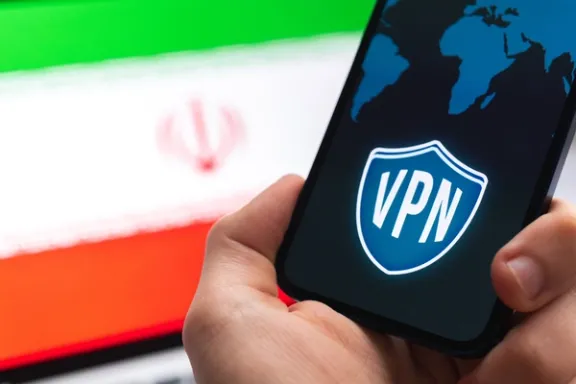
Iran's continued suppression of dissent has seen more disruptions to virtual private network (VPN) services amid an ongoing surge in internet crackdowns to silence opposition voices.

Iran's continued suppression of dissent has seen more disruptions to virtual private network (VPN) services amid an ongoing surge in internet crackdowns to silence opposition voices.
Reports say the disruptions have led to decreased internet access speed, exacerbating concerns over online censorship and surveillance in Iran.
The latest bans come amid a broader crackdown on internet freedom activists, with reports indicating the detention of several individuals engaged in advocating for unrestricted access to online content.
Among the detained activists, Youssef Ghobadi's unofficial detention has sparked widespread outcry, along with the arrest of another activist known as "Segaro," who was active on the X platform. The two had been working to develop and distribute circumvention tools such as VPNs to help Iranian citizens bypass internet censorship.
The crackdown aligns with legal measures announced by the Iranian judiciary aiming to penalize individuals involved in the VPN industry, allowing internet users to bypass state sanctioned bans.
Last year, Iran's judiciary announced its intention to punish unauthorized sellers and distributors of VPNs and other such tools based on Article 753 of the Islamic Penal Code. According to the article, the "production, dissemination, distribution, making available, or trading of data, software, or any type of electronic tool solely for the purpose of committing cybercrimes" is considered a crime.
This comes as various evidence points to the existence of a government-led VPN mafia in Iran. Iranian MPs have accused the government of being involved in financially benefiting from internet censorship and the companies producing censorship circumvention tools like VPNs.
Among those is Jalal Rashidi Kouchi who estimated that the financial turnover of VPN sellers in Iran amounts to approximately 800 million to 1 billion dollars annually.

Iran is trying to derail UN efforts to help internal dialogue in Afghanistan and foster engagement between Kabul and the international community, diplomatic sources have told Iran International.
The United Nations secretary general Antonio Guterres told a press conference in Doha on Monday that he will begin consultations on the appointment of a UN envoy to coordinate engagement between Afghanistan's Taliban and the international community.
Antonio Guterres said that Taliban representatives did not accept an invitation to a meeting of international envoys to Afghanistan that he convened in Doha on Sunday and Monday.
Diplomatic sources indicate that Tehran believes such efforts will reduce its influence with the Taliban in Afghanistan and boost US influence.
Afghanistan International, the sister broadcaster to Iran International, asked Iran’s representative, Hassan Kazemi Qomi, if Tehran was working against the goals of the Doha meeting. Qomi responded that the Islamic Republic of Iran engages in efforts that “benefit the Afghan people.”
Many international and non-governmental organizations and activists have attended the two-day meeting in Qatar. Guterres held closed-door meetings with diplomats and organizations to consult on prospects of improving the situation in Afghanistan and relations with Kabul.
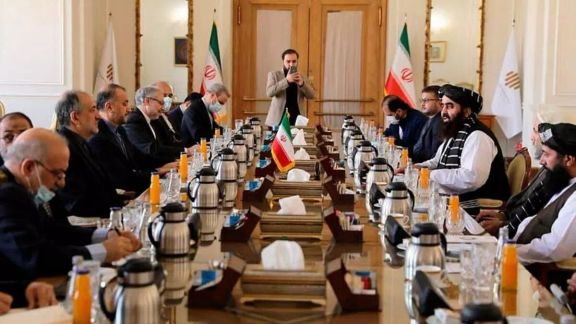
The Taliban government is largely unrecognized in the world, but it seems in no hurry to gain international acceptance.
The Taliban have refused the invitation from the UN Department of Political Affairs and Peacebuilding (DPPA) to attend the gathering. While Iran sent a representative, Russia has also refused to attend on the request of the Taliban.
Iran’s clerical regime and the Taliban have had mixed relations since 2021, when the US-supported government fell in Kabul and the militant group took over Afghanistan. Border clashes, a water dispute and million of Afghan refugees crossing the border into Iran have marked their attempts to foster relations.
Amid impasse on these issues, a 30-member Taliban “economic delegation” visited Iran in November. The delegation held talks with Iranian authorities on trade, transit, transportation, infrastructure, and railways, as well as regional development and the issue of the growing number of Afghan migrants in Iran.
The Afghan delegation was led by Abdul Ghani Baradar, First Deputy Prime Minister for Economic Affairs of Afghanistan and a co-founder of the Taliban along with Mullah Omar.
Amid the escalating Hamas-Israel conflict, the visit by the Afghan delegation was also be related to security issues. Baradar also held a meeting with Iran’s top security chief Ali-Akbar Ahmadian, the Secretary of the Supreme National Security Council and a close aide to Supreme Leader Ali Khamenei. "Afghanistan will not pose a threat to any of its neighbors," the Taliban official said according to IRNA.
Tehran has been urging internal reconciliation in Afghanistan between the Taliban, which heavily represent the Pashtuns in the country and Persian-speaking ethnic groups such as the Hazara. However, the Taliban reject Tehran’s call insisting that they are the government, and everyone should fall in line.
The aim of UN’s DPPA is to reintegrate Afghanistan into the world community with the objective of a country “at peace with itself and its neighbors, fully reintegrated into the international community, and meeting international obligations.”
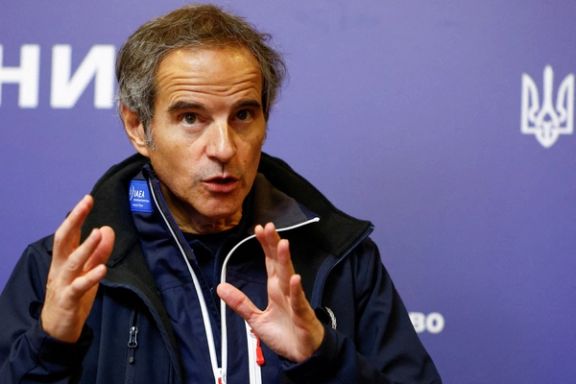
Iran continues to enrich uranium well beyond the needs for commercial nuclear use, the IAEA chief said, adding he wanted to visit Tehran next month for the first time in a year to end the "drifting apart".
Speaking to Reuters after he briefed EU foreign ministers on the subject, the head of the UN's nuclear watchdog, Rafael Grossi, said that while the pace of uranium enrichment had slowed slightly since the end of last year, Iran was still enriching at an elevated rate of around 7 kg of uranium per month to 60% purity.
Enrichment to 60% brings uranium close to weapons grade, and is not necessary for commercial use in nuclear power production. Iran denies seeking nuclear weapons but no other state has enriched to that level without producing them.
Under a defunct 2015 agreement with world powers, Iran can enrich uranium only to 3.67%. After then-President Donald Trump pulled the US out of that deal in 2018 and re-imposed sanctions, Iran breached and moved well beyond the deal's nuclear restrictions.
Between June and November last year, Iran slowed down the enrichment to 3 kg per month, but jumped back up to a rate of 9 kg at the end of the year, the watchdog, known as the International Atomic Energy Agency (IAEA), previously reported.
The increase came soon after Tehran barred a third of the IAEA's core inspections team, including the most experienced, from taking part in agreed monitoring of the enrichment process.
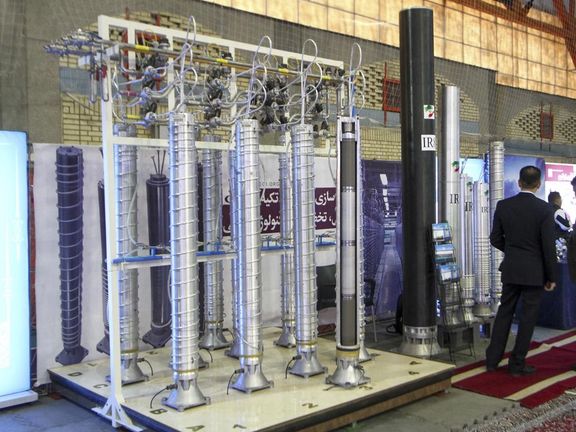
"This slowdown, speedup thing is like a cycle that for me does not alter the fundamental trend, which is a trend of constant increase in inventory of highly enriched uranium," said Grossi.
A spokesperson for Iran’s Atomic Energy Organisation was not immediately available for comment.
The IAEA warned at the end of 2023 that Tehran already had enough material to make three nuclear bombs if it enriches the material now at 60% to beyond 60%.
"There is a concerning rhetoric, you may have heard high officials in Iran saying they have all the elements for a nuclear weapon lately," Grossi said.
He said the concern was all the higher because of what he termed current circumstances in the Middle East, a reference to tensions over Israel's war with Iran-backed Hamas in Gaza.
"We seem to be drifting apart... Iran says they are not getting incentives from the West, but I find this logic very complicated to understand because they should work with us... It should never be contingent on economic or other incentives."
Before visiting Tehran, Grossi is to fly to Moscow to meet Russian President Vladimir Putin to discuss Iran and the Middle East, along with Ukraine.
Russia is a signatory of the 2015 deal, known as the Joint Comprehensive Plan of Action (JCPOA), alongside the US, China, France, Britain and Germany. The deal lifted sanctions on Iran in exchange for curbs on its nuclear activities.
"Russia has a role to play on Iran. It has played a role in the past as a JCPOA country and in the current circumstances where JCPOA is all but disintegrated, something must fill the void," he said.
Ukraine
Grossi said he saw a decrease in military operations around the Russian-occupied Zaporizhzhia nuclear power plant in Ukraine, the biggest nuclear power plant in Europe.
Fears of a serious nuclear incident were high when Russian forces took over the facility in 2022 and again following the destruction of the Kakhovka Dam last year.
"There hasn't been a militarization, any deployment of heavy artillery," he said, adding that nearby combat zones and recurring blackouts remained a worry.
"The minimum staff required to look after the plant in the current situation is there," he said.
Grossi said the minimum staffing was still met despite about 100 members refusing to sign a new contract with Russia's Rosatom that took over operations of the idled plant in 2022.
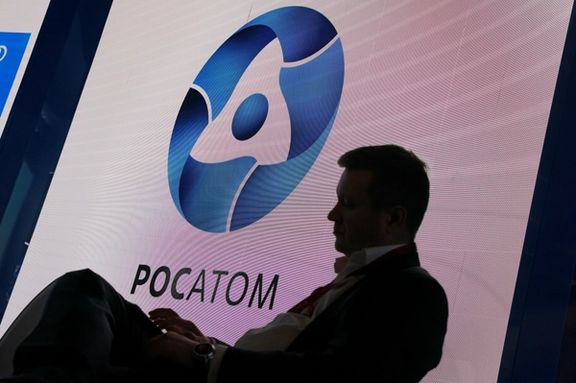
Sanctioning Rosatom
The EU has so far held back on sanctioning Russia's state-owned nuclear firm Rosatom or any of its subsidiaries despite numerous calls to target that industry. Europe still relies heavily on Rosatom which supplies nearly 50% of the world's enriched uranium.
"Many companies in the West depend on Russian supplies - enriched uranium or fuel... The consensus is sanctioning Rosatom would not be realistic and it's impractical. It would put the nuclear industry at a standstill in many countries," Grossi said.
Reducing dependence on Russia's nuclear sector would cost Europe billions, Grossi said, and he saw no immediate shift away. He added that the larger issue was infrastructure and incentives, and projections of rising uranium demand globally.
"Frankly, I see an increased presence of Russian uranium enrichment capabilities in the world rather than a decrease," he said.
(Exclusive reporting by Reuters)
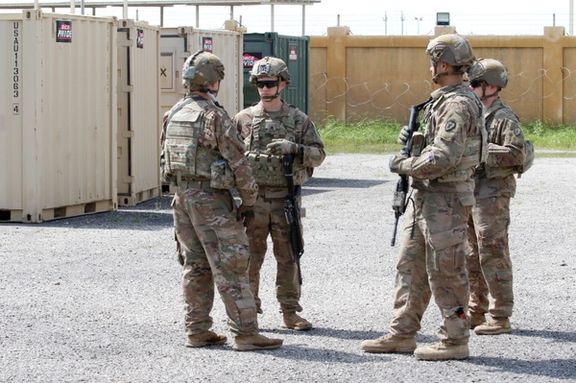
Amid escalating tensions over Iran's regional influence, Tehran repeated its stance against the presence of foreign forces in Iraq.
Nasser Kanaani, the spokesperson for Iran's foreign ministry, stated during a weekly briefing on Monday that Tehran views the implementation of a security agreement with Baghdad as beneficial for both countries' security interests.
"We do not see the presence of foreign forces in Iraq as helpful to Iraq's security, and we fundamentally oppose the presence of foreign forces in the region," Kanaani claimed. "We believe they have never been effective in ensuring regional security and, in fact, are detrimental to the security of the region."
Kanaani also expressed support to see the withdrawal of American forces. Iran's proxies in Syria, Yemen and Iraq have launched around 200 attacks on US troops and facilities in the region as retaliation for supporting the right of Israel to defend itself in the wake of the Hamas attacks on October 7.
The US stationed troops in Iraq after the 2003 invasion to combat terrorism and stabilize the country. Their presence continues as part of broader counterterrorism efforts against groups like ISIS, contributing to regional stability. US forces support Iraqi security forces with training, equipment, and advisory assistance to combat terrorism and protect sovereignty.
However, Iran supports proxy militias in Iraq to extend its regional influence and shape Iraqi politics. Viewing the US presence as a threat, Iran backs groups opposing it to undermine American influence and pressure troop withdrawal. Most proxies are Shiite Muslims, aligned with the regime, reflecting Iran's aim to empower Shiite communities and promote its Islamic ideology.
Iraq finds itself caught in the crossfire between the United States and Iran with conflicting interests. Since the US invasion in 2003, Iraq has struggled to maintain stability amidst political turmoil, sectarian violence, and external interference. With Iran exerting considerable influence over Iraqi politics and security through proxies and militias, tensions have escalated as the US and Iran engage in a complex geopolitical struggle for dominance in the region.
The assassination of Iranian Former IRGC Quds Force Commander Qasem Soleimani by a US drone strike in Baghdad further heightened tensions, pushing Iraq into the center stage of the conflict. Iraqi leaders face the daunting task of balancing their relationships with both the US and Iran while safeguarding their country's sovereignty and stability.
However, the balancing act is increasingly challenging as Iraq risks becoming a battleground for proxy conflicts and retaliation between Tehran and Washington, further exacerbating the already fragile situation in the region.
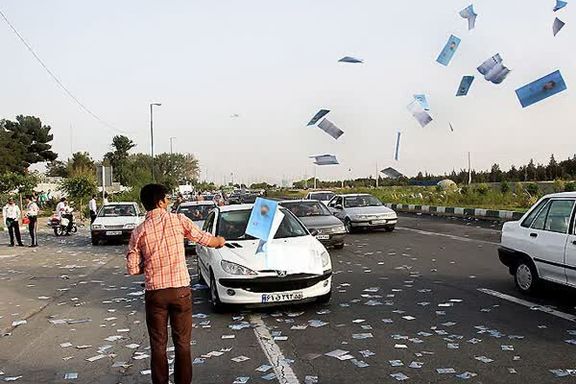
The chairman of the Election Headquarters for Tehran has announced that 3,898 candidates will compete for 30 parliamentary seats in elections in the capital on March 1.
Speaking to the state-owner ISNA agency, Abbas Johari, who is also a top official at the interior ministry, did not mention that no Reformist candidates or even well-known conservative figure are among the nearly the nearly 3,900 candidates whose qualifications have been approved by the ultraconservative Guardian Council.
The interior ministry and the constitutional watchdog, the Guardian Council, have rejected most regime politicians who do not belong to the ultraconservative and hardliner faction currently controlling the legislative and executive branches.
By announcing such unusually high numbers of candidates, the regime wants to present an aura of democracy, while it is clear to voters that the elections are not competitive.
Johari said that the candidates whose qualifications have been endorsed are allowed to campaign only between 22 to 28 February. February 29 is the no-campaign day, and the voting will take place on March 1, he said.
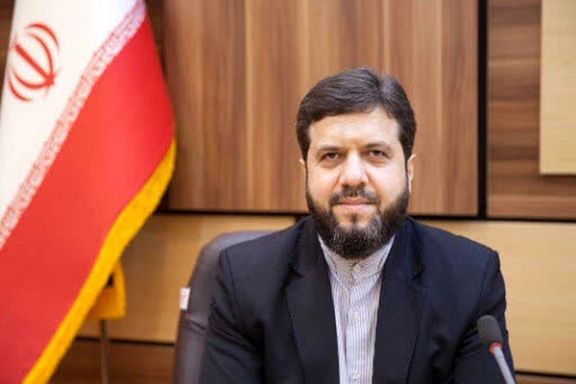
Many political groups including the Reform Front, an umbrella organization of more than two dozen reformist parties, have announced that they will not take part in the election in Tehran, describing it as non-competitive and not free and fair.
Nonetheless, the Iranian press reported on Friday that former President Hassan Rouhani will present a list of 16 candidates for the Majles election. His political party, the Moderation and Development Party, had announced earlier that not enough of their candidates have been approved to run, so that the party could not provide a list of 30 candidates. The party's spokesman said that Rouhani is still working to find 16 eligible candidates for his list.
According to Johari, campaigning for the Assembly of Experts election, on the same date, started on Thursday adding that 26 candidates will compete for Tehran's 16 seats at the Assembly, which has 88 seats all together.
Meanwhile, the election headquarters announced on Friday that only 49 out of 107 candidates for the Assembly of Experts have been disqualified by the Guardian council. In another development it was announced on Thursday that apart from the candidates disqualified in Tehran and other Iranian cities, 35 other candidates from various cities have withdrawn their candidacy to allow younger candidates to compete. The Assembly has the constitutional task to select Supreme Leader Ali Khamenei’s successor in the event of his passing.
Concerns about biased and unfair disqualifications and irregularities during the election and vote count exist even in the ultraconservative camp that seemingly in in control. Mohammad Nazemi Ardakani, an ultraconservative candidate, who served as a cabinet minister in President Mahmoud Ahmadinejad’s administration in the early 2010s, has expressed concern about the Interior Ministry's ability to hold a healthy and fair election. He expressed concern that the organizers of the election might behave in a biased way.
He said that the Interior Ministry has conducted a poll about participation in the upcoming election, but if the ministry publishes the outcomes of the poll, it might adversely affect the people's attitude toward the turnout.
The Ministry's poll results were published in late January in only one Iranian newspaper, Jomleh , and indicated that the turnout in Tehran is likely to be around 22 percent and the general turnout figure for the whole country is likely to be around 30 percent, which is even less than the previous parliamentary elections. Nonetheless, some reformist candidates have accused the Interior Ministry of exaggerating poll results under the influence of the ultraconservative Paydari party.
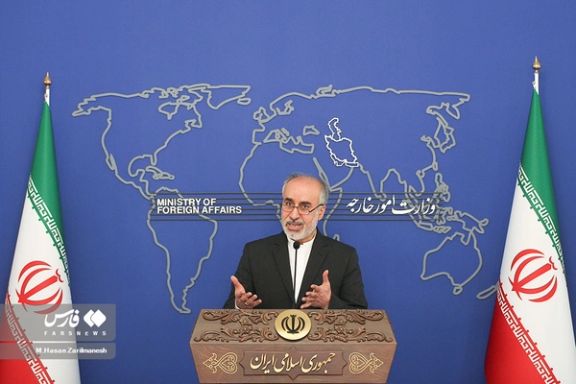
Nasser Kanaani, spokesperson for Iran's foreign ministry, branded the Munich Security Conference politically driven as the regime attempted to claw back credibility after being banned for a second consecutive year.
Kanaani said, "The organizers and hosts of the conference are deviating from its founding principles, transforming it into a platform for advancing their own agendas. The inclusion of individuals with a criminal past, contrary to global norms, reflects a troubling trajectory for this conference, and we harbor reservations about its future."
Banned along with Russia, Kanaani said the conference "has become a forum for disseminating unjust and deceitful narratives against sovereign nations."
The Islamic Republic is outraged over the presence of prominent Iranian activist Masih Alinejad in the event who was one of many calling for the designation of Iran's Revolutionary Guard (IRGC) as a terrorist organization after multiple failed assassination attempts on her life.
Despite Iran's absence from the conference for the second consecutive year, discussions at the prestigious event centered on the global fight against terrorism, Russia and Iran still top of the agenda. Approximately 50 heads of state and government, along with around 100 ministers, participated in the conference, where Tehran and Moscow were notably absent from the guest list.
The conference occurred against the backdrop of Iran's proxy warfare through militias in the Middle East, collaborating with groups like Hamas, which perpetrated an assault on Israel on October 7, resulting in the deaths of over 1,200 predominantly civilians, and the capture of over 250 people into Gaza.
Iran's exclusion from the conference stems from violent protests in 2022, triggered by the death of 22-year-old Mahsa Amini while in custody of Iran's hijab police. The demonstrations posed significant challenges to the clerical regime, marking one of the most significant uprisings since its establishment 45 years ago.